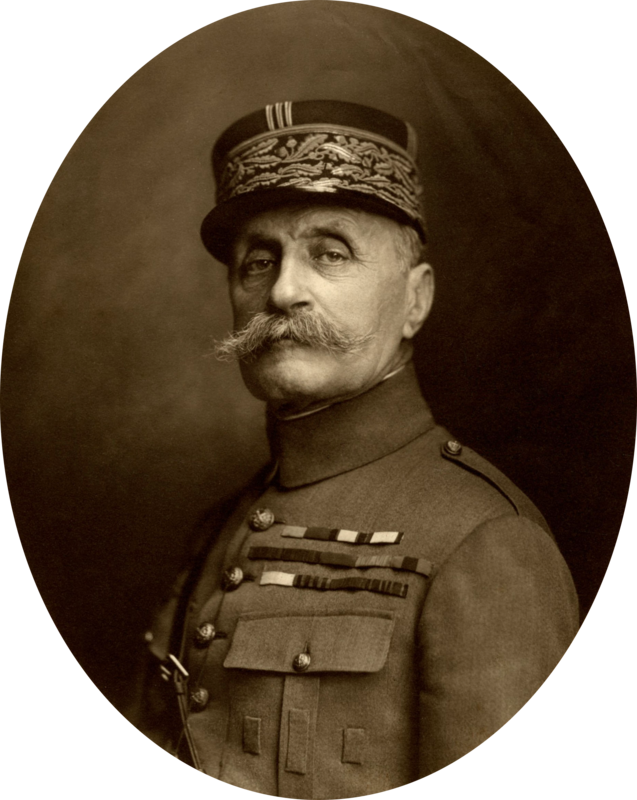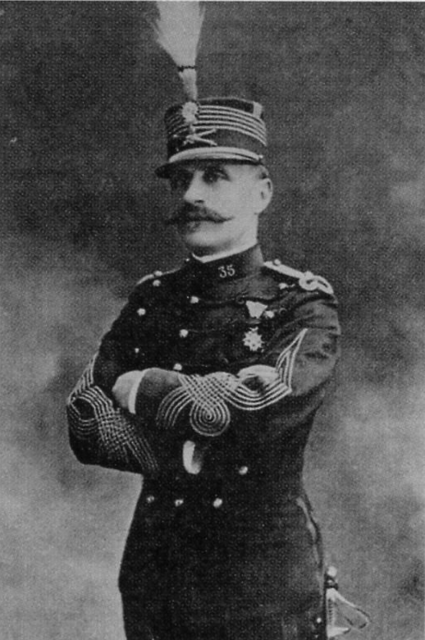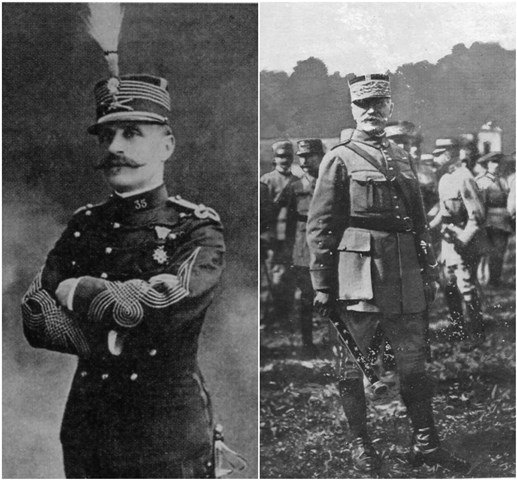Ferdinand Foch (1851-1929) was born on 2 October 1851 in Tarbes, the son of a civil servant. He resolved to become a soldier early in life, joining the army in 1871 where he served in the Franco-Prussian war of 1870-71.
He was impressive in college, so he was offered to remain as a teacher and his lectures were published as “The Principles of War”.
But Foch wasn’t just good with theory, so he became the commander at the First Marne, Flanders, and Artois campaigns of 1914-1916.

On the outbreak of the war, Foch was in command of XX corps, part of the Second Army of General de Castelnau. On 14 August the Corps advanced towards the Sarrebourg – Morhange line, taking heavy casualties in the Battle of the Frontiers. The defeat of the French XV Corps to its right forced Foch into retreat.
Foch acquitted himself well, covering the withdrawal to Nancy and the Charmes Gap before launching a counter-attack that prevented the Germans from crossing the River Meurthe.
Put in charge of the French Ninth Army during the Battle of the Marne, he blocked the German advance at the marshes of St.-Gond. “My right is driven in, my center is giving way, the situation is excellent, I attack,” he is supposed to have said. These words were seen as a symbol both of Foch’s leadership and of French determination to resist the invader at any cost.
He continues commanding the French armies in the north. During 1915 he directed the two Artois offensives. These offensives achieved little or nothing, but did convince Foch that it was no longer possible to achieve the decisive breakthrough in a single attack,

In 1916 Foch was in command of the French armies during the first battle of Somme. Later on, he was moved from his army group command to head a study group at Senlis. This was the low point of his wartime career.
The returning of Clemenceau as Premier meant that Foch could become the supreme commander. The crisis on the western front began on 21st of March 1918 with the second battle of Somme. This attack threatened to split the British and French apart. On 14 April he finally became Allied Command in Chief, with full authority over the British, French, and Americans.
Forming a common reserve and using these divisions to guard the junction of the French and British armies and to plug the potentially fatal gap that would have followed a German breakthrough in the British Fifth Army sector. In May 1918, in the fifth session of the Supreme War Council, Foch was given authority over the Italian Front.

On 6 August 1918, Foch was made a Marshal of France. Along with the British commander Field Marshal Douglas Haig, Foch planned the Grand Offensive, opening on 26 September 1918, which led to the defeat of Germany. After the war, he claimed to have defeated Germany by smoking his pipe.
Following the conclusion of the war Foch played a major advisory role at the Paris Peace Conference. Foch alienated Clemenceau, arguing forcefully for an even harsher peace that was eventually agreed at Versailles. As a result, Foch’s influence faded, and he decided not to press his cause by entering politics.
He believed that only permanent occupation of the Rhineland would grant France sufficient security against a revival of German aggression. However, the British Prime Minister David Lloyd George and the American President Woodrow Wilson objected to the detachment of the Rhineland from Germany but agreed to Allied military occupation for fifteen years, which Foch thought insufficient to protect France.
Disappointed with the result of the Paris Peace Conference Foch said: “This is not peace. It is an armistice for 20 years”. From that day in 20 years and 65 days, the Second World War started.
